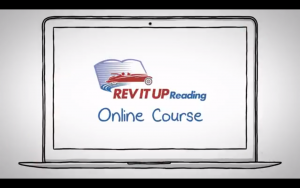Bullying is a prevalent problem in U.S. schools, with almost 30% of students reporting being bullied at some point during their middle and high school career. These alarming statistics are only made worse by the rise of cyber bullying in the wake of the smartphone era. Many schools are trying to combat bullying using a multifaceted approach, including special seminars and programs for young adults. Reading programs have been proven to be an effective way of getting through to school-aged children with lifelong lessons about how to deal with bullying.
Benefits for Victims
While people tend to think of bullied children as small and weak, bullying can happen to just about anybody. Victims often don’t fight back, and many are afraid to turn to an authority figure for help. Bullied children also tend to experience social isolation, often through no fault of their own. Their peers may fear being bullied by association if they form a friendship. Over time, bullying and social pressure can lead to anxiety, depression, and in extreme cases, even suicide among young adults.
Reading programs can provide early intervention for children who are victims of bullying by helping to build self-esteem, confidence, and stronger social skills. They can learn positive lessons about being unique from characters in a story and apply these to their own lives, fostering healthy personal growth. Books with carefully chosen subject matter can help to teach students that it’s okay to be different, and that unique traits are nothing to be made fun of. Reading programs also offer the opportunity for children to meet new friends who can empathize with their situations.
Benefits for Bullies
Like victims, bullies come in many forms. Some bullies aren’t even aware of how they’re making their classmates feel. It’s important to reach out to bullies with the same care and sensitivity that you would a victim. Without intervention, bullies often escalate their behavior. A teenager who starts out as a bully is more likely to end up as a criminal in later life.
Reading programs can help to teach bullies about the consequences of words and actions, and help them to empathize with their victims. Thinking about things from a character’s point of view can make it easier for a bully to understand their own behavior. Books can also teach bullies healthy ways of channeling their aggression and dealing with classmates.
With bullying on the rise, it’s crucial that schools and parents do everything they can to teach kids about healthy social interaction. Reading can help to change how bullies think about the world around them and how victims see themselves. By implementing reading programs for bullies and their victims, authority figures can take the first step towards eliminating conflict in the schoolyard.


 ENTER NOW
ENTER NOW